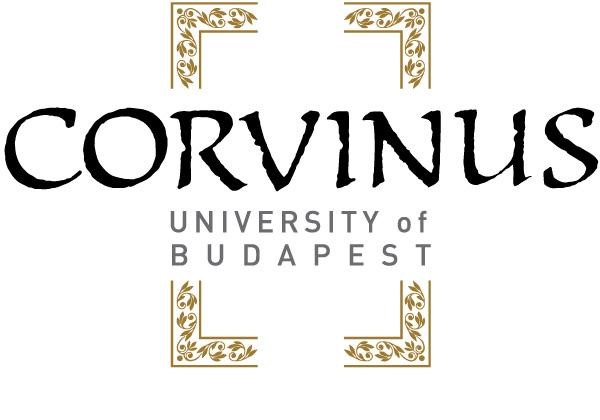
The role of the State in Economic Development, State Capacity, State Autonomy and Economic Development
 |
Budapest, Hungary, 19-21 October 2017 |
The 29th EAEPE Annual Conference will take place in Budapest on 19-21 October 2017. The conference theme is inspired by the most recent history of political and economic transition in Central-and Eastern Europe. The topic is seen as an attempt of catching-up through the establishment of a successful socio-economic development model. The theme invites contributions to consider the applicability of the legacies of previous and current development models with special regard to the role of state in designing and managing strategies of catching-up.
Following the usual EAEPE format, prospective participants are invited to submit a paper on either the conference theme or one of the 25 EAEPE Research Areas. Abstracts (300-750 words) should include the following: the name(s), email address, affiliation of the authors, along with the name and code of the relevant Research Area. Following a notification of acceptance, a full paper will be invited.
Please submit your Abstract here!
Please have in mind that only one presentation per author is allowed; additional papers can be submitted by the same author but need to be presented by a registered co-author, if accepted by the scientific committee in advance.
Background to the 2017 Conference Theme:
Development studies provide a variety of strategies and models that various states used for their catching-up and convergence. The concepts usually included strongly articulated state policies (intervention) to accelerate growth, establish solid institutional background, support business development, create potent innovation system and good quality education. The actual implementation depended on the world economic environment. Historically, successful cases were less frequent than failures. The good examples of Germany, Japan, South Korea, Finland and Ireland more recently and some other countries served as benchmark for others.
The latecomers who copied the elements of successful models of developmental state were usually less successful yet, in some cases good progress could be achieved with significant amendments or case specific combinations of these elements. The question could be put to what extent existing good practices could be copied? Another important question was the extent of state intervention. Was success achieved due to state guidance of development or was it rather a lucky coincidence of autonomous factors and Hayekian criticism on excessive state influence is due? Were development failures simply the result of mismanaged public policies, or were they due to the misinterpreted role of the state, along with a lack of expertise, capacity and autonomy for managing the process of catching-up?
These questions always received new attention when world economic setting changed. We are witnessing such fundamental changes today. The questions about the results and efficiency of existing development models under the circumstances of globalization emerge in a new light. What happened to Japan or South Korea? Have their “miracles” faded out because they reached their development targets of catching up, or are there inherent tensions in the models that were amplified by the process of globalization? What are the determinants of the new development success stories of China, Indonesia, India or Viet-Nam? What about their applicability in other countries and regions? How about the transition process in Central and Eastern Europe? Did these countries choose appropriate solutions? Was their development mode coherent?
What is the proper response of states to economic globalization, a process that transforms the world economy into an organic system? To what extent can the state still be a formative (f)actor in the era of constantly deepening economic interdependencies? Can the state be the main driving force for economic development by facilitating the integration of the national economy into the global market on the one hand and by moderating the vulnerability of certain sectors and actors of the national economy in a globalized world economy on the other? States are certainly not obsolete, but to what extent are they effective and capable in promoting economic development? And how have changes in technology, capital and communication transformed the state–society relationship in both successful and unsuccessful transformers? The several decades-old question on state capacity and state autonomy, i.e., whether these are prerequisites to a successful development or are they merely a consequence of successful catching up, is back again and is more relevant than ever.
Legacies and current options of avenues of economic development and catching-up offer substantial variety of topics and research methods. Scholars are encouraged to join the discussion of active state policies fostering economic development and opportunities, as well as the limitations of their applicability.
Keynote Speakers:
Important Dates:
- January 16, 2017: abstract submission opens
- March 20, 2017: special session proposal deadline
- May 15, 2017: abstract submission deadline
- June 15, 2017: notification of abstract acceptance; registration opens
- July 31, 2017: early registration closes
- September 15, 2017: late registration closes (for authors to be included in the scientific programme).
- September 15, 2017: full papers submission deadline.
Conference Fees:
The conference fees and the EAEPE membership fees are denominated in Euros and are paid on the website of the association.
| Regular Rates | Special Rates |
| by 31st July 2017 – 190 €
after 31st July 2017 – 250 € |
PhD/Masters students – 90 €
Subsidized fee[1] by 31st July 2017 – 100 € |
[1] For participants from developing countries and regions particularly affected by crisis Please apply in advance to Pasquale Tridico (tridico@uniroma3.it) and Oliver Kessler (oliver.kessler@uni-erfurt.de).
Contacts:
Krisztina Szabó (Corvinus University of Budapest): krisztina.szabo11@uni-corvinus.hu
Gábor Vigvári (Corvinus University of Budapest): gabor.vigvari@uni-corvinus.hu
Download the First Call for Papers!
